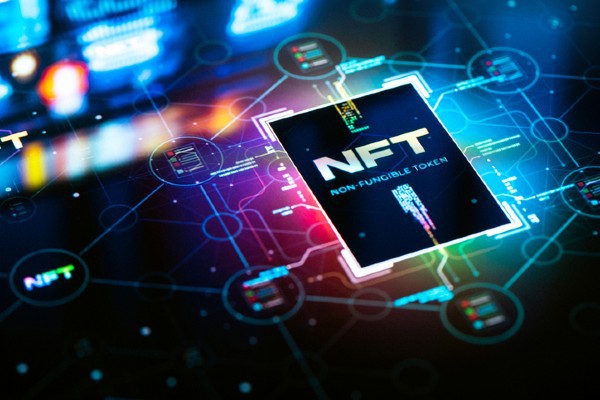
Can You Serve a Defendant Through NFTs and Other Electronic Means?
In March 2023, Judge Beth Bloom of the U.S. District Court for the Southern District of Florida held that a plaintiff could serve defendants by non-fungible tokens (NFTs). Thieves had stolen almost $1 million in cryptocurrency from the plaintiff, Rangan Bandyopadhyay, who did not know their identities. NFTs offered the only way to communicate with the anonymous defendants.
In an increasing number of cases, courts have allowed plaintiffs to serve defendants electronically. Courts are allowing these alternative methods if traditional means of serving defendants are fruitless.
Service of Process Requirements
The Fifth and Fourteenth Amendments of the U.S. Constitution state that no person may be deprived of “life, liberty, or property, without due process of law.” Thus, a court cannot exercise personal jurisdiction over a defendant unless that defendant has been properly notified of the legal proceedings. The defendant must be served with a court summons and a copy of the complaint. These papers are known as “process.”
Rule 4 of the Federal Rules of Civil Procedure governs service of process in federal court. A plaintiff is generally responsible for having the summons and complaint served on the defendant, although the court may appoint a process server in some instances. Any person 18 or older who is not a party to the action may serve the defendant. Typically, the process server must hand the documents directly to the defendant or a suitable substitute at the defendant’s home or workplace. The plaintiff must provide the court with the server’s affidavit as proof the defendant was served.
Use of Alternative Methods
Service of process isn’t always straightforward. The process server may not be able to track down a valid address for the defendant, or a cagey defendant may avoid personal service. If the plaintiff is unable to personally serve the defendant after multiple good-faith attempts, the court will allow service by alternative means. Generally, that involves sending the process via certified mail or putting a notice in an appropriate publication.
If those methods fail, the plaintiff may petition the court to allow service by other means. The decision to allow alternative methods lies solely within the discretion of the court. However, many courts have agreed that a plaintiff should not be restricted to the methods specifically mentioned in the federal rules if the defendant is actively eluding them.
While case law continues to evolve, courts have allowed electronic service if plaintiffs show that defendants have knowingly provided a false address or concealed their location. For foreign defendants, the plaintiff may show that they cannot physically reach them.
Challenges With Electronic Service
Before proceeding, however, the plaintiff must prove that the alternative method is likely to reach the defendant. For email, the plaintiff must show that the defendant regularly communicates online and has recently used the email address the plaintiff plans to use for service.
Obtaining the court’s permission to serve a defendant via social media can be trickier. First, the plaintiff must show that the defendant owns the social media profile the plaintiff plans to use. Social media platforms are filled with fake accounts — it’s a simple matter for someone to copy images and information from a real social media profile to create a fake one. The age of the account may serve as evidence of its authenticity. The plaintiff must also show that the defendant uses the social media account regularly.
The next hurdle is to prove that the defendant has been properly notified. Some social media platforms provide confirmation that a message is received and seen. In other cases, proof of service is more difficult. Courts are still working out the logistics on a case-by-case basis.
The Future of Service of Process
Service by NFTs represents new territory. NFTs are unique cryptographic identifiers that represent tangible assets, an individual’s identity, ownership rights, or other information. Bitcoins are tokens but are not NFTs because they are fungible and not unique. NFTs are typically recorded on a blockchain and cannot be modified, substituted, or copied. Owners store them in their digital wallets, which are secured by a cryptographic key.
The exchange of crypto assets occurs only digitally, through wallet addresses on the blockchain. Plaintiffs who are victims of theft or fraud have no other way of identifying defendants. If the wallet is not associated with a centralized exchange, the defendant’s real identity cannot be determined through third-party disclosure. However, the wallet is a unique identifier, and courts have allowed service by NFTs in a few instances.
NFTs are not typically used for communication, so it’s unlikely they’ll see widespread use for service of process. Nevertheless, courts are increasingly willing to look beyond procedural rules and allow electronic methods of service. Practitioners should stay abreast of court decisions as electronic communications continue to evolve and expand.
Learn More About New Developments in Law
Stay up to date on the most current legal developments in California and the rest of the nation with Purdue Global Law School.
Purdue Global Law School offers an online Juris Doctor if you wish to become an attorney licensed in California. If you wish to advance your legal education but do not intend to become a practicing attorney, you may consider an online Executive Juris Doctor.
Single law courses are also available to help you explore a particular area of law without committing to a full degree program. Request more information today.

